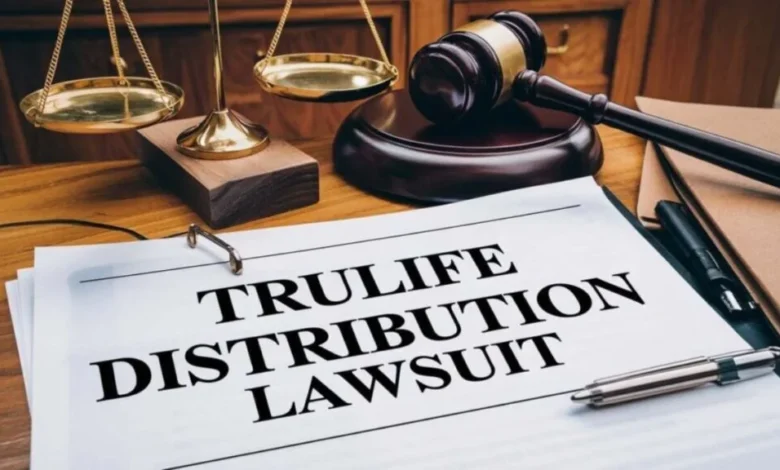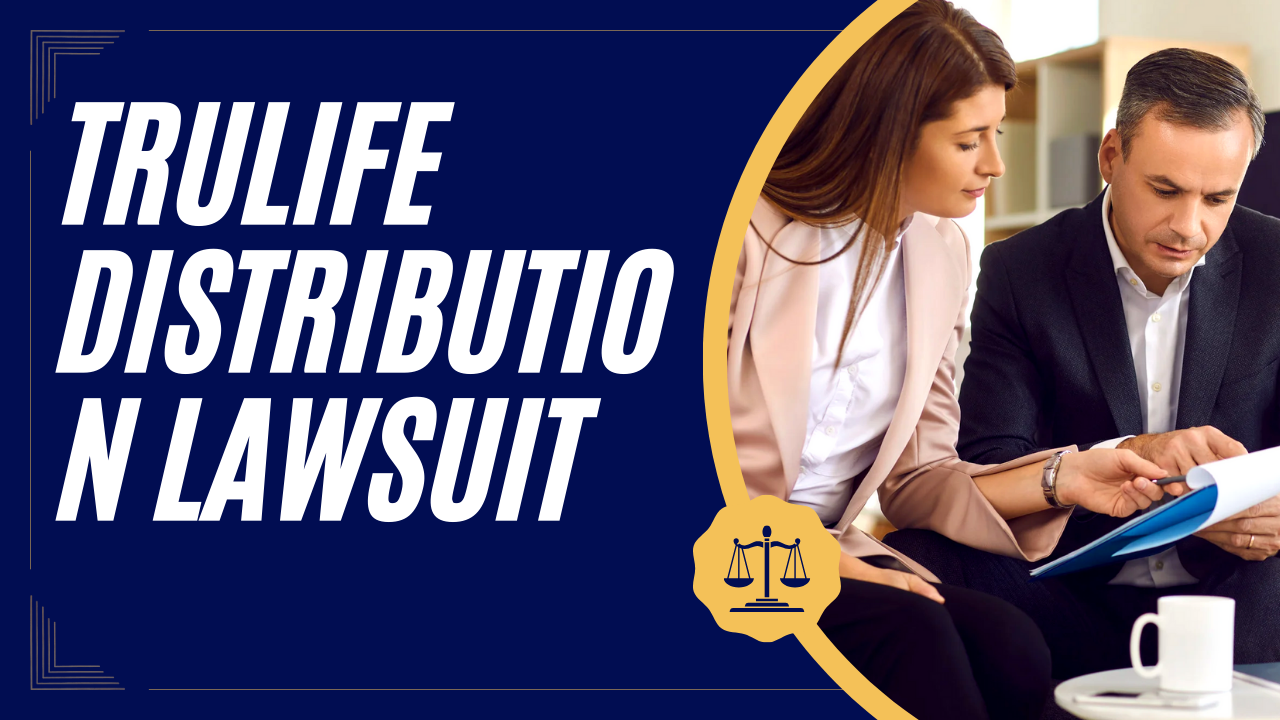The Trulife Distribution Lawsuit: A Comprehensive Overview

Introduction
Trulife Distribution, a prominent name in the distribution industry, has long been recognized for its innovative approach and robust operations. However, the company has recently found itself at the center of a legal controversy that has garnered significant attention. The lawsuit against Trulife Distribution not only questions its practices but also raises concerns about broader industry implications. This article delves into the details of the lawsuit, its potential impact, and what it means for stakeholders involved.
Background of Trulife Distribution
History and Operations
Trulife Distribution began as a small operation focused on delivering quality products to its clientele. Over the years, it has expanded into a major player, servicing a wide range of industries including retail, healthcare, and consumer goods. Its ability to scale operations and adapt to market trends has positioned it as a leader in the sector. By leveraging technology and logistics expertise, Trulife has set benchmarks in efficiency and reliability.
Previous Controversies or Legal Challenges

While Trulife Distribution has achieved notable success, its journey has not been devoid of challenges. In the past, the company faced minor disputes related to delivery timelines and client contracts. Although these issues were resolved amicably, they serve as a reminder of the complexities involved in large-scale operations. The current lawsuit, however, is of a different magnitude, threatening to overshadow its legacy.
Details of the Lawsuit
What Triggered the Legal Action
The lawsuit stems from allegations of unethical business practices, including breach of contract and misrepresentation. The complainants, a group of former clients and partners, claim that Trulife failed to honor agreements, resulting in financial losses. This has led to widespread speculation about the company’s internal processes and decision-making protocols.
Key Allegations
Central to the lawsuit are accusations that Trulife knowingly provided false information to secure contracts. The complainants argue that this misrepresentation has caused substantial financial harm and eroded trust. Additional allegations include delays in service delivery and a lack of transparency in communication, further fueling the controversy.
Trulife Distribution’s Response
In response, Trulife Distribution has categorically denied the allegations, asserting that the claims are baseless. The company has issued statements emphasizing its commitment to ethical business practices and transparency. Legal representatives for Trulife argue that the allegations are exaggerated and lack sufficient evidence, vowing to vigorously defend the company’s reputation in court.
Legal Proceedings and Timeline
The lawsuit has already seen several key developments, including preliminary hearings and the submission of evidence. Legal experts predict a lengthy process, with both sides presenting complex arguments. While the timeline for resolution remains uncertain, the case is poised to have far-reaching consequences for Trulife and its stakeholders.
Implications of the Lawsuit
For Trulife Distribution
The lawsuit poses significant challenges for Trulife Distribution, both financially and reputationally. Legal fees, potential settlements, and operational disruptions could strain resources. Moreover, the negative publicity surrounding the case threatens to tarnish the company’s brand image, potentially impacting customer loyalty and market position.
For the Industry
The lawsuit highlights critical issues within the distribution sector, prompting calls for stricter regulatory oversight. Competitors may face increased scrutiny, while industry standards could evolve to address gaps in transparency and accountability. This case serves as a cautionary tale, urging companies to reassess their practices to avoid similar pitfalls.
For Consumers
For consumers, the lawsuit raises concerns about product availability and service reliability. If Trulife’s operations are disrupted, supply chain delays could occur, affecting end-users. Additionally, the controversy may lead to heightened awareness among consumers, who may demand greater transparency and accountability from companies they engage with.
Expert Opinions and Analysis
Legal and industry experts have weighed in on the case, offering varied perspectives. Some argue that the allegations, if proven true, could set a precedent for holding companies accountable for unethical practices. Others believe that Trulife’s strong defense could expose weaknesses in the complainants’ case, ultimately clearing the company’s name. Regardless of the outcome, the lawsuit underscores the importance of ethical conduct and robust compliance mechanisms in today’s business environment.
Conclusion
The Trulife Distribution lawsuit represents a pivotal moment for the company and the industry at large. While the allegations and ongoing legal battle have cast a shadow on Trulife’s achievements, they also provide an opportunity for introspection and improvement. The case serves as a reminder that ethical practices and transparency are indispensable in maintaining trust and credibility in the business world. As the proceedings unfold, stakeholders will keenly observe the developments, drawing lessons that could shape the future of the industry.
FAQs
Q1: What is Trulife Distribution known for?
Trulife Distribution is renowned for its efficient logistics solutions and wide-ranging services in industries like retail, healthcare, and consumer goods.
Q2: What are the main allegations in the lawsuit?
The lawsuit alleges unethical practices, including breach of contract, misrepresentation, and lack of transparency in service delivery.
Q3: Has Trulife Distribution faced lawsuits before?
While Trulife has encountered minor disputes in the past, this lawsuit is the most significant legal challenge it has faced.
Q4: How has Trulife Distribution responded to the allegations?
The company has denied all allegations, emphasizing its commitment to ethical business practices and promising a robust legal defense.
Q5: How might this lawsuit impact the industry?
The case could lead to stricter regulatory measures and heightened scrutiny across the distribution sector, potentially setting new standards for accountability.
Q6: What lessons can other businesses learn from this case?
Businesses can learn the importance of transparency, ethical conduct, and robust compliance mechanisms to mitigate legal risks and maintain trust.
You May Also Read:https://vlpside.com/



